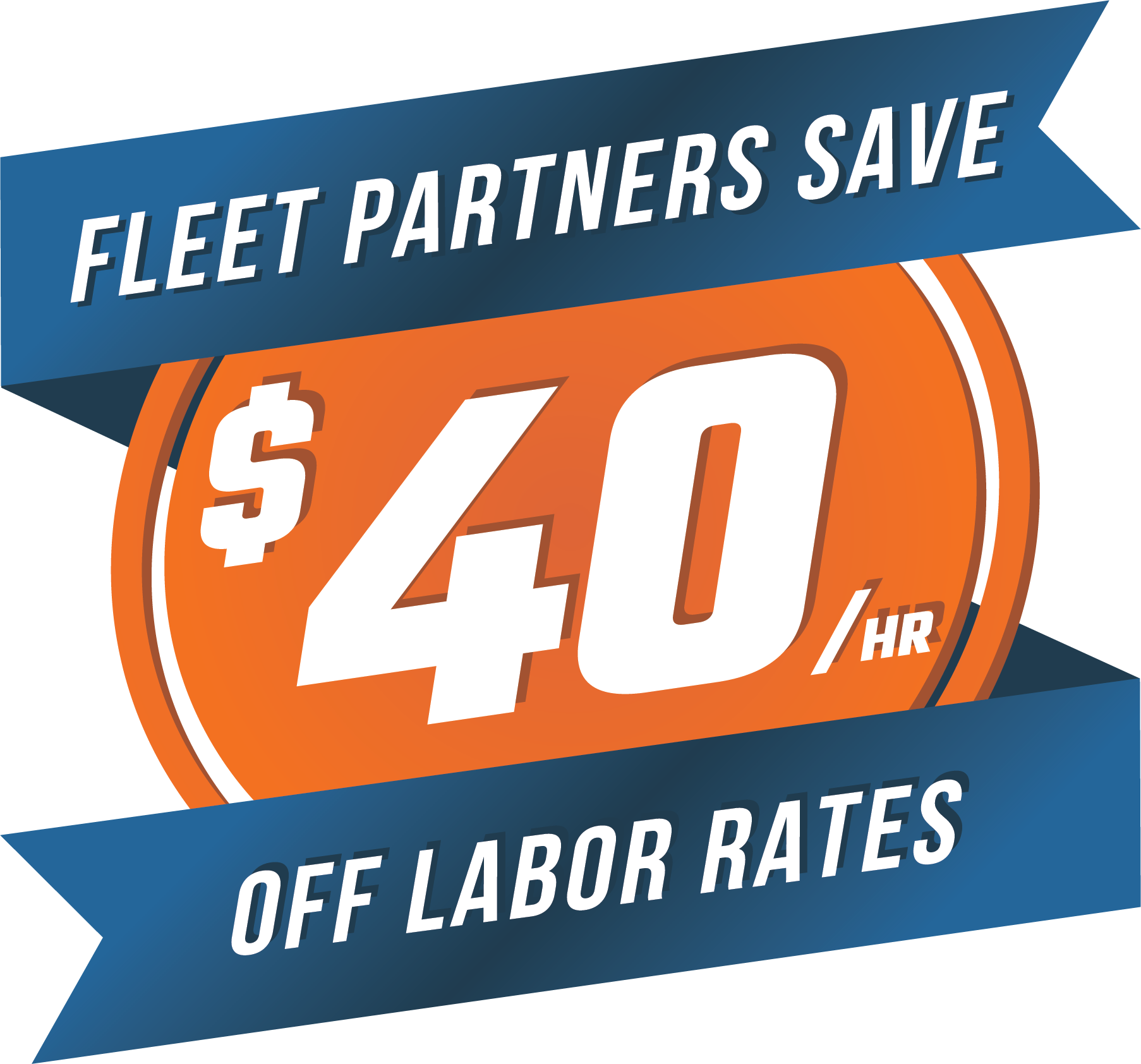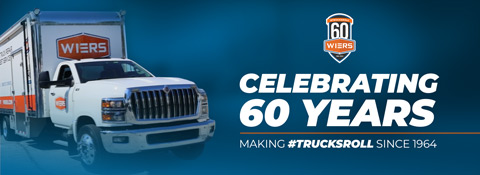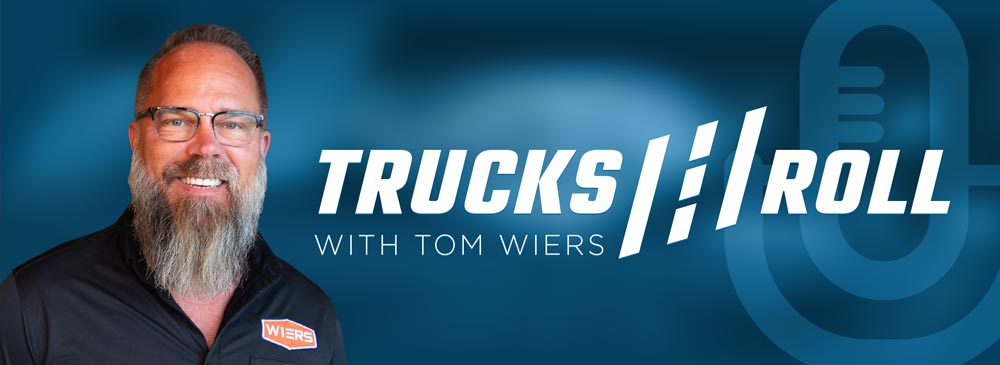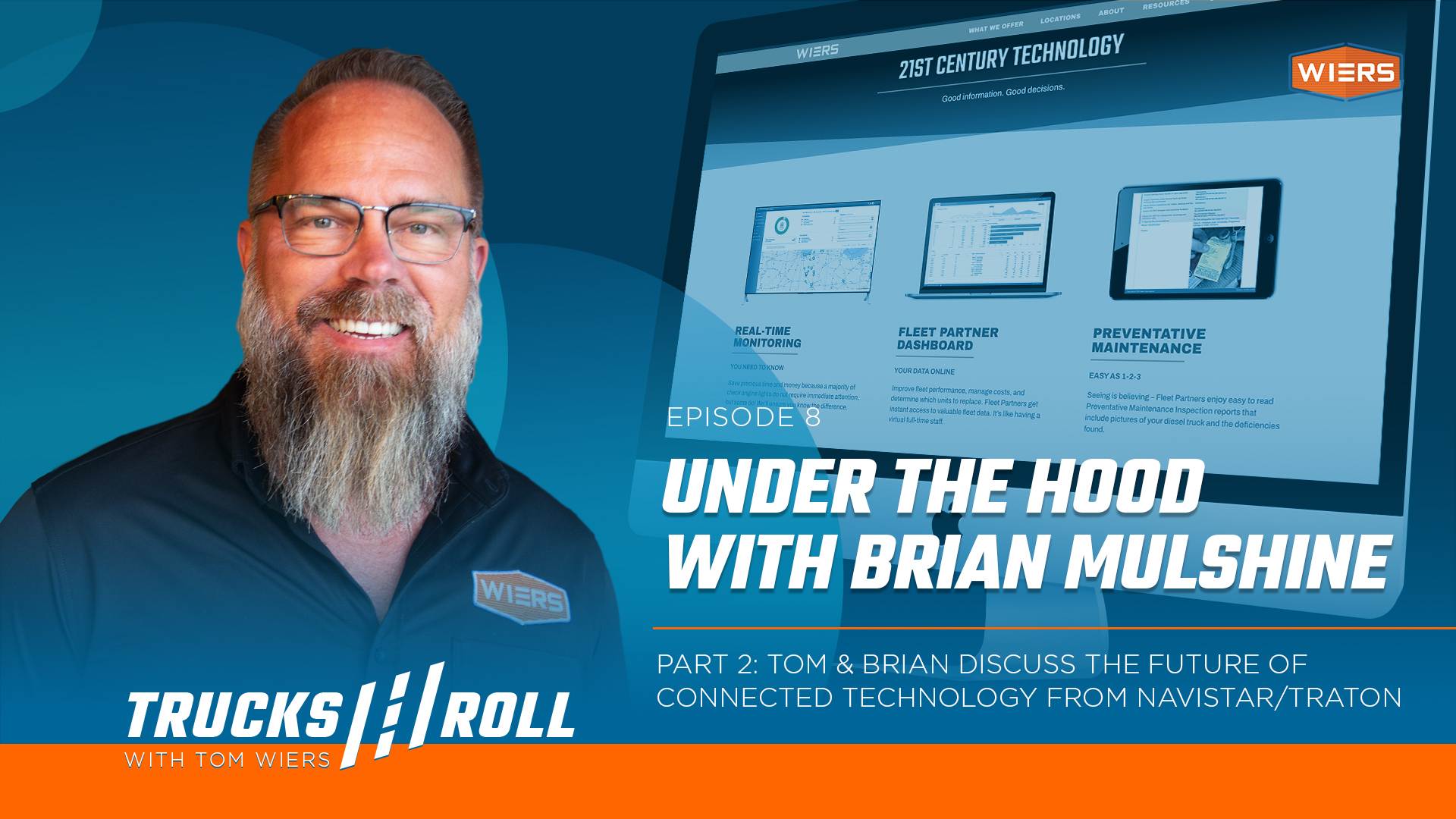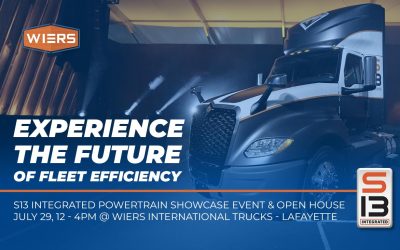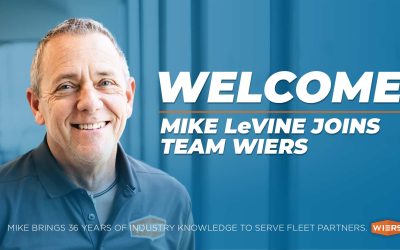
Part 2: Under the Hood with Connected Technology – Trucks Roll Ep. 8
Part 2: The Future of Connected VehicleTechnology
Paving The Way With Navistar
In part 2 of our interview with Brian Mulshine from Navistar, we discuss the benefits of connected technology for diesel trucks. This episode will help you better understand some of the value of connected technology. From telematics to real-time diagnosis, new developments in technology is making it easier to keep your trucks on the road, improving your uptime.
We at Wiers are experts in this field and can help you keep your vehicles on the road and earning. Visit us at wiers.com today to learn more about our services and fleet partnership plans today!
What You’ll Learn
- How Brian’s unique role in the Navistar organization is helping fleets optimize their information.
- How better information helps inform better decisions and keeps your trucks on the road.
- Some of the history of how connected technology has evolved over the last few years.
Here is the transcript for Trucks Roll Ep. 8:
Brian: When you look at a vehicle because the cost of oil changes, the cost of oil is going up. Finding many fleets are changing the oil not too far out. Like not stretching them too far. But they’re changing them too often.
Tom: Welcome back to the Truck’s Roll podcast with Tom Wiers. This is part two with Brian Mulshine from Navistar. We’re going to be talking about the future of connected technologies and also the purchase of Navistar by Volkswagen. Hope you enjoy.
Tom: You know, we’re as we always, always preach about preventive maintenance, preventative, but, you know, it’s if you do nothing. Right. Preventive maintenance, that’s half the battle. I know that there’s a lot of discussion and movement towards fuel, fuel consumption in terms of preventive maintenance intervals. So I thought, you know, anything that you’ve seen on the preventive maintenance side as it relates to connected vehicle technologies and then if you could speak specifically to the fuel consumption and what that’s what the trends are.
Brian: You know, when you look at a vehicle, because the cost of oil changes, the cost of oil is going up. And the oil in oil pan. Right. I think about, you know, many leasing fleets out there. They’re fine. I’m finding many fleets are changing the oil not too far out, like not stretching them too far, but they’re changing them too often. You know, it’s some of our engines are designed where they have really good fuel economy getting over seven miles a gallon on a class eight truck. You can go 60 to 65, 70,000 miles on our engine.
Tom: Wow.
Brian: You’re using, you know, a fuel economy strategy. But I’m still finding people changing in 40 because that’s how they always did it. That’s how their dad did it.
Tom: Right.
Brian: And it’s one of those things that the technology that’s in oil today, it has the right chemistry, that it doesn’t break down as fast. And you also have better filtration, a lot more expensive filters. So you got to leverage that technology to actually stretch it. Now, if you look at an operator’s manual, the problem is it’s a Rubik’s cube. You know what? When do you change your oil? Well, it depends depends on your fuel economy. It’s when you look at the table, you’re going to want to look and say, my fleet is getting so much so many miles per gallon. But you might find out that, well, half you trucks are getting greater than six and a half and some are getting less. So let’s put the truck on the schedule and let’s take advantage of optimization of the fuel economy.
Tom: Yeah.
Brian: In Navistar International 360 Application or IC Bus 3060 application. We have the ability to do advanced PPM logic where we build templates. It’s like a Rubik’s cube. We can also do it on all makes we do it on Detroit’s and Volvos and others and we can actually leverage the fuel economy as long as your telematics broadcasts us the fuel economy data. And we’ll actually let you stretch the oil, change animals and you’re going to save a lot of money. Some fleets on our saving 1 to 2 oil changes per year and if they have a number of trucks now you can do the math pretty quick,
Tom: Right.
Brian: A lot of money.
Tom: And associated downtime and all the other things go along, you know, put up a truck in the shop. But what about, you know, what about the grease in the kingpins and the drive train and the driveline? And what about vocational applications where, you know, do those things just those as that fuel economy apply in those other applications? And are you getting like grease greasings between those long intervals or was that being handled?
Brian: I was actually going to mention that where if you’re in a severe application or off road, you have bad environments or awkward environments. A lot of people are still able to put into the APM product. I want a great service every 60 or 90 days is a lot of a lot of people I see out there doing a 90-day dry service and then doing an oil change based on the engine, mileage and fuel economy. And they’re saving a lot of money, but they’re still looking at the truck and doing a dry service.
Tom: Right.
Brian: …now, optimizing the vehicle cost, improving your TCO.
Tom: Yeah, yeah. I think about, you know, a lot of those vocational applications that we serve where they have a lift gate or something and you know, a truck if you have a liftgate, was out of service at a customer’s lot. You know, it’s going to put the truck out of service. So how do we look at that equipment periodically to make sure that’s not going to happen, but also to take advantage of the technology and not spend money on oil in oil changes and filters and stuff if we don’t need to. So those are all great points. I really appreciate that. Where do you see? Where’s all this going? I mean, increasingly, I was at a dealer meeting back in November. And and there’s more discussions about, you know, zero-emission vehicles and hydro fuel cell, I guess, types of vehicles. And so, I mean, as you look, you’ve been in a 30 years. I’ve been in it 30 years. What does the next ten years look like to you?
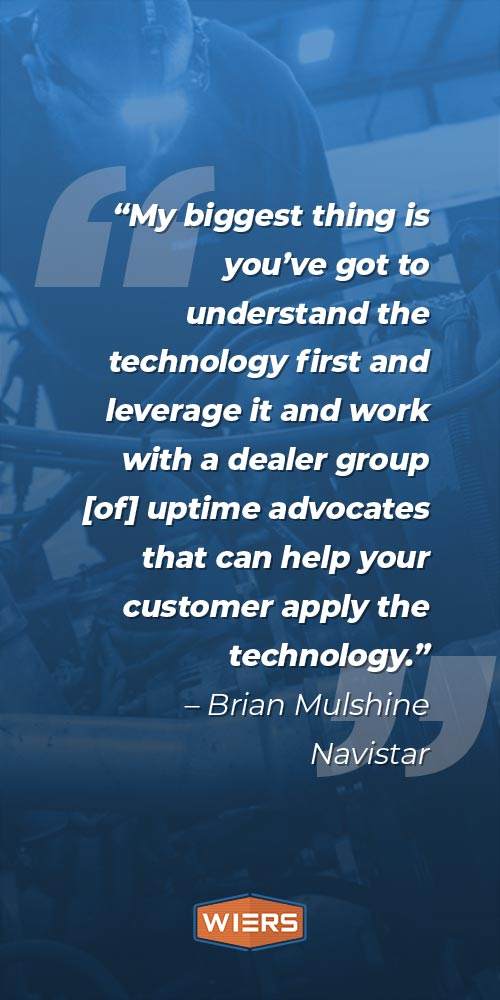
Brian: It’s it’s…
Tom: Easy question by the way.
Brian: I might be retired in ten years. That’s a good point. But, you know, and I think about this and really I always remember hearing somebody talk about the future. And I’m going to first explain this one story. I remember it was like 1908 in New York City. They showed there was one auto buggy and all horses and they showed that same street ten years later. And there was all auto buggies and one horse now.
Tom: Right
Brian: But now I think the speed of change is much more dramatic than what it was in the 1900s. And I think based on even an article yesterday up in Canada, it’s by 2030, I think they said that it’s going to be 35% of the vehicles will be electric or fuel cell. You know, and we’re working with partners on electric and fuel cell and we’re going to have some incredible technology with our partners with Traton. It’s really exciting what’s coming. But I think right now, you know, I, I say I’m living with the short term mentality and I got to be long term game, game.
Tom: Yeah.
Brian: Where I am building our strategy, where we can do predictive and then also condition-based. There’s also the term condition-based payments where you’re not going to change the oil on a vehicle. The engine is going to tell you when to change fuel, just like some auto manufacturers do that today. That is coming in the truck space. And then also I look at electric, it’s just going to be something different to service inside that, you know. So, okay, we don’t have oil train but you’re going to have other items to service.
Yeah.
So but it is going to change the game of servicing in the future and I think that you’re going to see electric growth quick and fuel cell be for the longer over-the-road trucks. But it is going to change and in ten years it’s not going to be as much.
Brian: But I still think it’s critical because I don’t think ICE engines, internal combustion engines are just going to go away. Right. You know, we’re still going to have to support both.
Tom: Yeah. You know, sometimes I live in the Midwest, so sometimes I’m a little, I guess, conservative stuck in my ways or skeptical about all the change that people talk about. I go back to the you know, when we started this conversation up with Aware in the 2003 and 04 and it took a long time for that technology to evolve. But I was down it again back to the dealer meeting, which really had an impression on me. And there was discussion about, you know, these electric vehicles and somebody made a reference to think about it as ketchup coming out of a bottle. You know, you wait and wait and wait and then plop. There it is. And they said that’s what’s going to happen with electric. And I can see even in the last six months, you know, I’m starting to see more activity around electrical vehicles. So I have to say, even though I’m maybe stuck in my ways and a cynic at times or I don’t want to change, it feels like it’s coming and it feels like there’s going be more change in the next ten years than we’ve had in the last 30 years.
Brian: Absolutely.
Tom: And, you know, we have no option but to rise to the occasion and and really face it head on. So it’s going to be a very interesting time for sure. And so, you know, one of the things and you touched on this just a moment ago that I want to explore it a little bit. Tell us about Tritan. So Navistar, you know, my family got involved as the International Harvester dealer back in 1964. So we’re 58 years into this. I’ve been involved in 30 years being a guy from Indiana where Fort Wayne was, you know, a lot of production and there’s a lot of history there with the company. Of course, Chicago’s not far from where I lived as well, so I’ve been an International guy in my entire life.
Tom: And up to last year, Tritan, which was part of the Bowl Volkswagen Organization, bought Navistar. So can you tell us a little about that transaction and what you think that means for the brand and for the dealers and hopefully even for the customers?
Brian: Yeah, I’ll tell you, it’s without global scale. You know, we’re dead. I mean, when I look at that, the cost to engineer a product today tool a cab, tool an engine, design an engine, the cost is incredible. And then you look at the commodities that go into building the vehicle. And really as other OEMs are consolidating, so are we. But you think about this in the past, I’m just rounding numbers. We saw, let’s say a million tires on a vehicle. Well, now we’re a part of a much bigger family that’s buying like 100 million tires, being the Volkswagen Scania MAN, Porsche, Bugatti, all these other companies that are consolidated in the Volkswagen Traton family. We go in with incredible buying power where we’re able to work with our vendors and get a much more competitive price like the other manufacturers are getting.
Tom: Yeah
Brian: But then also when you look at the engineering, the teams that are part of the Traton family are fantastic. Our engineers and their engineers are working together and we’re bringing products to market that are fantastic. That will be you’ll be seeing some new products coming in with our our new CBE1 drive train. That’s going to be fantastic. That will all be consolidated. You know, I’ll be integrated and I think the customers will have a really good warranty and a really great reliable product coming out of a family of other vehicle manufacturers.
Tom: Yeah. Sorry to interrupt. You know, as a dealer, starting out as a dealer, I could sense complete different feeling at the at the meeting, just the the new leadership backed by Volkswagen through time, just the ability to invest and the long, long term horizon. And what are we doing out not quarter to quarter, year to year, but what’s five, ten years look like? Yeah, was was really a breath of fresh air. And that’s not a knock on the previous leadership because it was a, you know, standalone private company with limited resources. And now being part of that much larger global organization just affords them so much more creativity and financial resources and scale and all the things you mentioned. It’s really exciting to be a dealer at this point in time, quite honestly.
Brian: It’s exciting to be an employee here.
Tom: I bet it is.
Brian: And, you know, it’s really we’re seeing great people. In fact, this morning spent an hour on the phone with our counterparts from Scania working on projects that we’re going to do that you’ll see in the States here in the future. And we’re leveraging ideas, working together and it’s really exciting to see.
Tom: Yeah, that’s great. That’s fantastic. Well, it’s been amazing to talk to you. Is there anything else that our audience ought to know about, you know, connected technology or the digital future or anything that comes to mind that I haven’t touched base on?
Brian: My biggest thing is you got to understand the technology first and leverage it and work with a dealer group like yourself that has you know, you have a team, we call them uptime advocates that can help your customer apply the technology. And really, I say, how do we get them wet and get them into it? And, you know, the customer can do it or you can support them with your strategy.
Tom: Yeah.
Brian: But we got to make sure they understand how to apply it into a process.
Tom: Yeah.
Brian: And I can’t thank you enough for what you’ve done for our customers.
Tom: I appreciate it. And you know, it’s really great to get you on the podcast because, you know, I’ve had multiple conversations and, you know, you’re down. We went out to dinner, spent the night in my house a couple of months ago, and it’s great for me to hear all this stuff, but my ability to repeat it and share back to our team or customers is limited. So the ability to get this on, on on tape is part of the Trucks Roll podcast is really a pleasure. And hopefully it’s it’s a meaningful and meaningful content for our customers, prospective customers or others in the industry. So we really appreciate your time, Brian, at. We call this the Trucks Roll podcast because I’m always reinforcing to our team that our our customers aren’t paying us to have trucks sitting in the lot or in our bays. They’re paying us to for their trucks to roll. And like Southwest has wheels up. Let’s get those aircraft in the air. That’s what we want to do it where’s it going to get our customers trucks up and running so they can make money delivering products and services in a safe, cost-effective, reliable manner. And we couldn’t do that without you, the Navistar team, and all the support that you give us. So we appreciate you and the 11,000 or so folks and also, you know, other are partners in the industry. So appreciate you, Brian, being on it. You’re a wealth of knowledge and a true industry expert and innovator. So thank you very much. And for those of you watching, be on the lookout for future episodes. We’re going to have great content and leading industry experts helping you understand what’s going on in the industry and how to run your fleet a little more efficiently.
Thanks for tuning in to the Trucks Roll podcast. Really appreciate Brian’s time. If you need help with connected technologies, telematics or those sorts of things, go to wiers.com. And of course, we’re always here to help you with your maintenance and repair needs for your commercial fleet.
So thanks for tuning in and we’ll see you soon at the next episode.
Links:
- Share your thoughts and connect with us on Facebook
- Check out more videos on Youtube
- Listen to the Previous Episode
